June 20, 2017
Student Feature: Baden Williams
Student Feature: Baden Williams
It’s getting late in Ilombi, Papua New Guinea. Baden Williams is standing in his modest functional hostel room just large enough to fit a writing desk, a bed, and a small single gas stove. He’s cooking dinner in his one and only saucepan, mindful of the fact that the power will go off in a little while and he’ll get nothing until the next morning. His internet connection, sketchy at the best of times, is nonexistent this evening. There is no phone, no TV, no refrigeration.
He grins. He absolutely loves it.
Baden Williams is 81 years old. He did his PhD in soil science and then went on to work for the CSIRO in Canberra for over 30 years as an agricultural scientist before going into private consulting for 10 years until his retirement.
And then six years ago, his wife passed away. And Baden suddenly felt an emptiness he longed to fill.
Through Anglicare he learnt about Ilombi (pronounced “Yomby”), a village of 50 inhabitants situated 70 kilometres from Mount Hagen, the third biggest city in PNG. The roads are so bad, it takes two hours to travel the 70km from the village to Mount Hagen. Power supply is intermittent and rationed. The village has no form of income, although 500 children from neighbouring areas pour in to use their primary school.
Baden saw an opportunity to help in a meaningful way. The elder of the village had set aside a hectare of land for free to farm. Baden bought the farming equipment and the seeds and set to work. Together with a team of seven volunteers from the village, they spend hours working the land and slashing through wild bamboo by hand. The bamboo is recycled for compost, and Baden is pleased to find that the rich volcanic soil is free-draining, “beautiful”.
His aim is to prepare 20 beds of English potatoes, each bed the size of a cricket pitch. With a yield of a few tonnes, the village gets to sell these purely organic potatoes in Mount Hagen. The first crop already has a guaranteed buyer — Baden. Through proceeds of the sale, the village can set up a bank account and then learn about money management going forward.
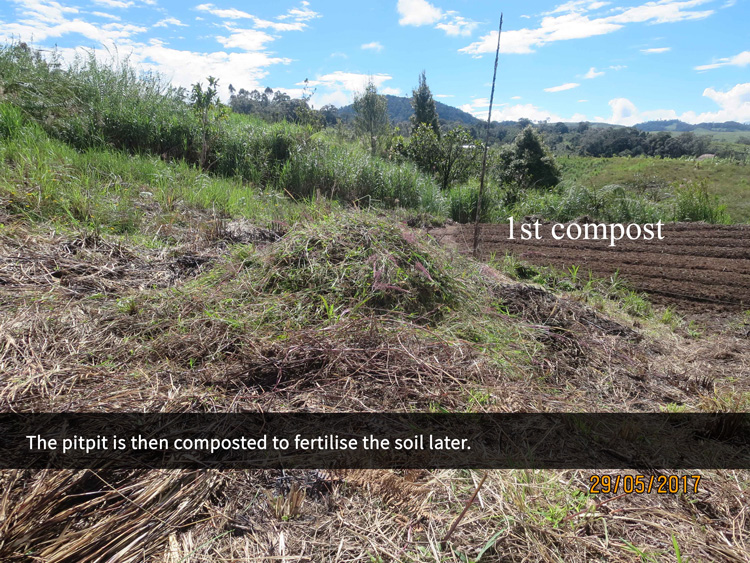

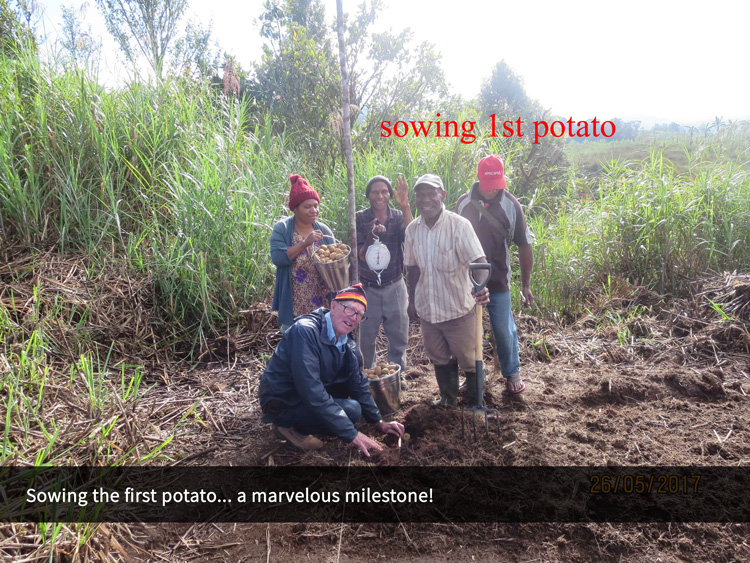
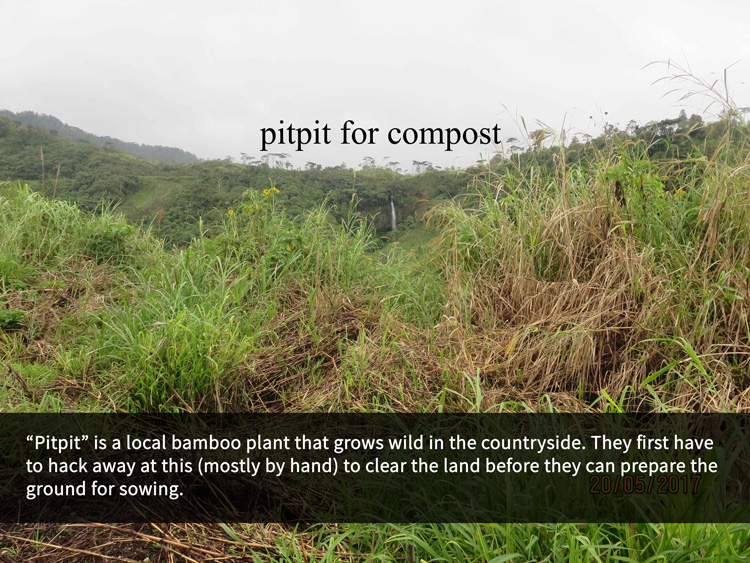
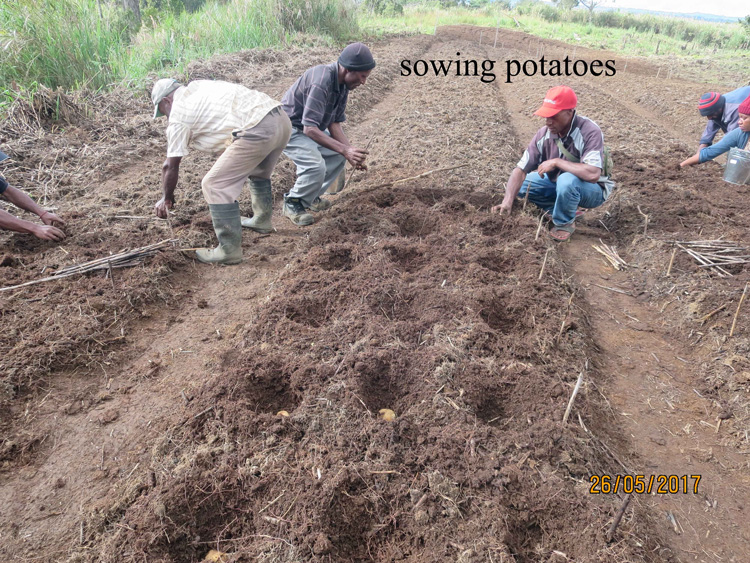
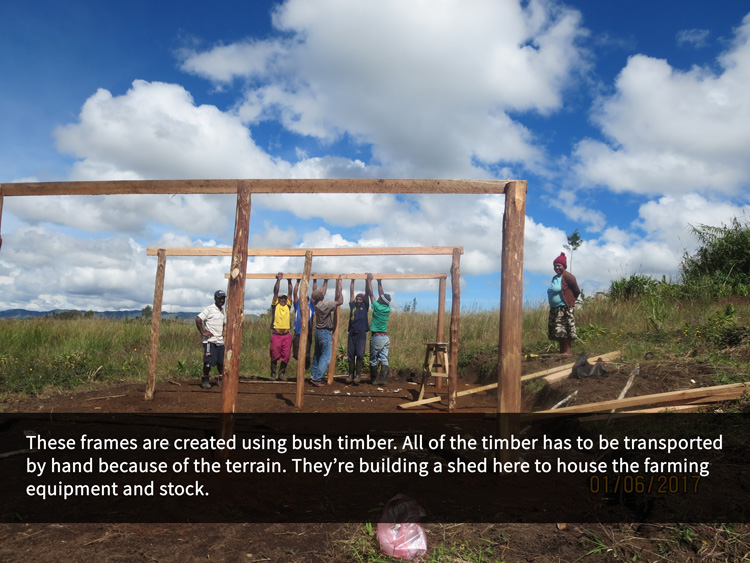
The villagers know him well now. He’s grown on them as much as they’ve grown on him. The children yell out his name and come running when they see him. The villagers have taken it upon themselves to take turns shadowing him as he goes about his day, just to be sure he’s safe.
It rains heavily in the afternoons. As the heavens open and the rains pour down, Baden settles in to indulge his other great new love and pastime — theology. Baden started his Graduate Diploma in Theology studies last year with St Mark’s, and cannot get enough.
“I really enjoyed my lectures last year. Two of my lecturers, in particular, just some of the best lectures I’ve ever had — and I’ve been exposed to public speaking for a long time.”
Baden has been a church goer since he was a baby. He has read and written religious materials, even writing a Kindle book called “The 13th Disciple”, aimed at making the gospel more accessible for teenagers.
“Last year’s lectures were a big eye opener for me,” he relates, smiling. “I realised I don’t know much about the Bible, despite these years of being in church.
“It’s been a real pleasure taking a critical look of the Old and New Testament, and church history. I really enjoy it.
“I’m 81. I don’t know how much time I have left, and I’m happy to go when it’s time. But these three years in Ilombi give me the fellowship, that sense of being wanted. And studying theology as well.
“I want to spend my last few years doing something useful,” he explains, and then his face breaks into a smile that comes from the bottom of his heart. “I’m very, very happy.”
St Mark’s National Theological Centre © 2024
Charles Sturt University is an Australian University TEQSA Provider Identification: PRV12018 . CRICOS Provider: 00005F.